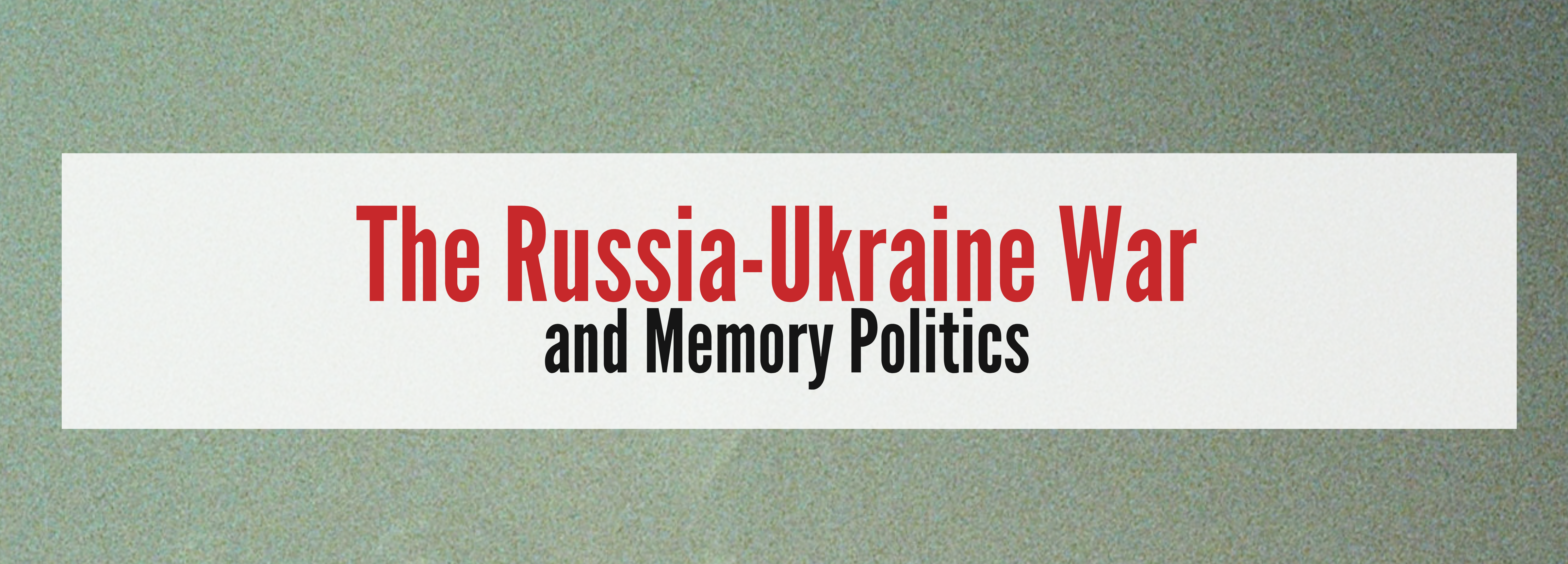[CANCELLED] The Russian-Ukrainian War: The Role of Memory in the Midst of Conflict
-
[Cancelled]
Nataliia Ivchyk, Political Science, Rivne State University; History, UBC; and John Grace Memorial Holocaust Historian in Residence at Green College
Coach House, Green College, UBC and livestreamedWednesday, January 17, 5-6:30pm with reception to followin the series
The Russia-Ukraine War and Memory Politics -
Can we find answers from the past to the events we are witnessing today, even when we are participants in both eras? Historical memory is a tool that helps nations and communities form a collective memory of the past and present. Ukraine has repeatedly fought against imperial encroachment and has continued to do so every day for almost two years now. Members of Ukrainian society have become both participants in the current tragedy and bearers of yet another collective trauma that is shaping their collective memory of Russia's current war against Ukraine. What forms of remembrance of Russia's current war against Ukraine have emerged across the country? What is the role of the state and civil society in this process? This talk is dedicated to acknowledging the memory of the current war, of the collective past and our shared present and future.
Co-organized with History, UBC.
 Nataliia Ivchyk is a Holocaust scholar active in the field of public history and memory politics. She is an Associate Professor in the Department of Political Sciences at Rivne State University for the Humanities in her hometown of Rivne, Ukraine. Together with Maksym Gon (a history professor currently serving in the Ukrainian Army) and Petro Dolhanov, Nataliia co-founded and is a project manager of NGO Mnemonic, an organization devoted to citizenship education and the memory of the multicultural history of the Rivne region. In 2022, NGO Mnemonics was awarded the History of National Socialism prize by The Munich Documentation Center for its work in documenting the violent history of the twentieth century.
Nataliia Ivchyk is a Holocaust scholar active in the field of public history and memory politics. She is an Associate Professor in the Department of Political Sciences at Rivne State University for the Humanities in her hometown of Rivne, Ukraine. Together with Maksym Gon (a history professor currently serving in the Ukrainian Army) and Petro Dolhanov, Nataliia co-founded and is a project manager of NGO Mnemonic, an organization devoted to citizenship education and the memory of the multicultural history of the Rivne region. In 2022, NGO Mnemonics was awarded the History of National Socialism prize by The Munich Documentation Center for its work in documenting the violent history of the twentieth century.Nataliia's research examines gender and children's experience during the Holocaust as well as memory politics in Ukraine and East Central Europe. She has held a number of international fellowships. Her recent research projects include: "Disgraced Worlds: Jewish Families during the Holocaust" (European Holocaust Research Infrastructure, July 2022), "Gender and Everyday Life in Volhynia and Podolia Jewish Ghettos" (Prague Civil Society Center and Charles University in Prague, Czech Republic and the Leibniz Institute for East and Southeast European Studies, Germany, 2021) "Life and Agony of the Jews in the Rivne Ghetto: Reconstructing Women's Experiences" (Yad Vashem, Israel, 2018) and "Ghettos in the General District of Volhynia and Podolia in Memories of Jewish Victims and Neighbors" (United States Holocaust Memorial Museum, 2017-18). Her most recent publications include monographs titled Insulted Otherness: Ethno-Confessional Policy of the Russian Empire in Right-Bank Ukraine, 1850-1880 and The Town of Memory – the Town of Oblivion: the Palimpsests of the Memorial Landscape of Rivne (as a co-author), which addresses the gendered aspect of the symbolic space of Rivne.
To learn more about Nataliia and her residency at Green College, visit our Invited Residencies page.

Russia's full-scale invasion of Ukraine in February 2022 has led to a heretofore unseen surge of international interest in Ukraine. A part of the Soviet Union for over 70 years, Ukraine achieved its independence in 1991, starting the process of its democratization. Over the next three decades, Ukrainians have brought about significant political and societal changes in their country. But what is the Ukrainian memory of the Soviet past? What was the role of civic society in re-shaping Ukrainian memory of its Soviet past? How do Russians view the Soviet period of Ukraine? And now, after Russia’s two invasions of Ukraine and the tragic wars that have ensued, what changes are taking place in the collective culture of remembering among the people of Ukraine?
This series of lectures series thus aims to consider how conflicts are shaped by memory, and how they affect the memory and psyche of a people under attack.
Series Conveners: Nataliia Ivchyk, Political Sciences, Rivne State University and John Grace Memorial Holocaust Historian in Residence at Green College; and Richard Menkis, History

-
Unless otherwise noted, all of our lectures are free to attend and do not require registration.
Custom Lecture Fields
|